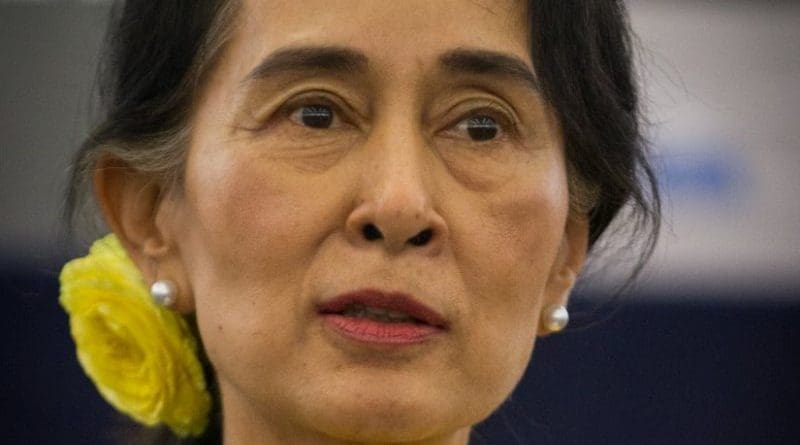Myanmar’s Wheel Of Change – Analysis
By Observer Research Foundation
By Mihir Bhonsale*
The landslide victory of Aung San Suu Kyi’s National League for Democracy (NLD) in the November 8 elections is a harbinger of changing times in Myanmar. The mandate handed over to NLD that cornered 390 seats in the combined houses of parliament shows people’s firm belief in the leadership of Suu Kyi.
Winning clear majority, bagging more than 2/3rds of seats, the NLD has been put in a position of steering reforms in the country. The NLD is in a very strong position to elect the President. Suu Kyi who is barred by the constitution from becoming the President or Vice-president has already indicated that she will be “above the President” allowing her to remain at the helm of affairs.
The last decade has been an intense period in the history of this South-east Asian country. The stepping down of Senior General Than Shwe as the head of the state and Commander-in-chief was a definitive moment into the transition to democracy in Myanmar. A constitution was promulgated and elections were held in 2010, putting a civilian government in place.
The release of democracy icon Suu Kyi in 2010 and a host of political prisoners opened avenues for reconciliation between the Tatmadaw (military) and opposition parties. This corrective measure was employed by Tatmadaw was made to nullify the disregard for electoral mandate handed to NLD and seizure of power in 1990. Suu Kyi’s party that won 43 seats in the 2012 by-elections saw her party emerging as a formidable opposition and an important player in national politics.
The threats to “free and fair” elections loomed large on elections even this time around. The astronomical rise of Buddhist extremist group Ma-Ba-Tha and their smear campaigns against Muslims threatened to cause disruptions in elections. The ensuing tussle of armed groups with Tatmadaw in Shan States saw last minute cancellation of in two townships.
In the regions where the votes held, excepting stray incidents, the elections were peacefully held and around 80 percent of the electorate cast their votes. For the first time in the country’s history, overseas nationals cast their vote. The disenfranchisement of more than a million Rohingya populations was a glaring exception in what were generally “free and fair” elections in the country.
The ethnic parties’ performance was disappointing and has implications on the country’s political future, especially with regards to ethnic reconciliation. Unlike the 1990 elections, there was no understanding between the ethnic parties and NLD. Vote-splitting also was evident considering that as many as 59 ethnic political parties fought the 8 November elections.
Excepting the Arakan National Party and Shan Nationalities League for Democracy, no ethnic party registered double digit seats in the lower and upper house of the parliament, combined. NLD made inroads in the Karen state when it won 4 parliamentary seats out of 5. Five ethnic parties that fought the elections in Karen state could manage only one.
This, by all means shows that in a polarized contest between the military-backed Union Solidarity Development Party and the NLD, ethnic parties were pushed to the corner. The loss of ethnic parties would risk their role in policy-formation at a national level.
Military’s control
The military’s role remains crucial in Myanmar as under the 2008 constitution, 25 percent of seats are for military and three-key ministries. The constitution also allows the military to have a veto power over constitutional amendments. Suu Kyi would have to work closely with the Tatmadaw to carry forward the reform process undertaken by her predecessor government. Suu Kyi and her party have so far failed to engage in a dialogue with the military.
The military remains more pronounced because of its involvement in ensuing tussle with ethnic armed groups in remote corners of the country. The military would also be the prime actor in the political dialogue that is set to start early next year.
Suu Kyi would also have to contend with the expectations of the people for economic growth and social and cultural well-being. They would want their leader to bring back the pariah nation from isolation to integrate well into the globalizing world. Living up to the mark and fulfilling aspirations of the people would be a daunting task before Daw Suu Kyi.
The successful conduct of elections and the rise of ‘The Lady’ in national politics presents an opportunity for exemplifying itself as a successful transition to democracy in the eastern hemisphere. High stakes ride on the shoulders of the Nobel Peace Laureate to facilitate emergence out from the throes of Least Developed Countries of the world.
*The writer is a Research Assistant at Observer Research Foundation, Kolkata and a doctoral candidate at the Calcutta University

